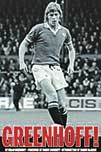 by Brian Greenhoff
by Brian Greenhoff
Empire, £14.99
Reviewed by Joyce Woolridge
From WSC 315 May 2013
Rarely can five years have generated as much football print as Tommy Docherty’s stint at Manchester United. Although Docherty’s managerial skills and style continue to polarise opinion, no one has argued he was a defensive genius. The statistics bear that out: away from home his United team always let in more than they scored, apart from their one year sabbatical in Division Two. Brian Greenhoff’s blunt autobiography, fully embracing the Yorkshire stereotype of never being afraid to call a spade a shovel, at least has the merit of bringing into focus what, especially in the mid-1970s, could be considered as one of the most cultured centre-half pairings in British football: himself and Martin Buchan. Sammy McIlroy here deems them “absolutely one of the great underrated defensive partnerships”.
When Greenhoff signed for United as a schoolboy in August 1968 he was unimpressed by Old Trafford’s shabby facilities and organisation, compared with what he had seen at Burnley. He credits coach and former player Bill Foulkes with stopping the apprentices cleaning the ground all afternoon and saving him from an unnecessary operation, by organising strength training after he broke his leg and was prescribed rehab of running up and down the Stretford End paddock.
An unashamed supporter of Docherty, Greenhoff was one of those young talents promoted by the manager, who found them far easier to deal with than the established names at Old Trafford. Accidentally, as he admits in the foreword, Docherty converted Greenhoff into an unlikely centre-half, given that he stood just over 5ft 10ins, and he went on to partner the only slightly taller Buchan for two seasons. Both were elegant ball players who countered their lack of height by pushing out quickly and pressing the opposition. United, claims Greenhoff, called this strategy “attack the ball”, adding that today’s Barcelona and Spain employ something similar.
If Greenhoff has nothing bad to say about Docherty, the same isn’t true for his replacement Dave Sexton (boring, overly obsessed with systems, afraid to deal with players directly), nor Allan Clarke (nobody liked him, obsessed with running and weighing players) who took over at Leeds shortly after they bought Greenhoff for £350,000. The post-United and potentially more interesting section of Greenhoff’s professional career is dealt with relatively brusquely. A stint in South Africa, initially as part of a “rebel tour”, which ends prematurely because of protests, passes without dealing with any ethical considerations. Greenhoff famously became part of another United pairing when his brother Jimmy joined United in 1976 (as Buchan’s brother George had done previously). The two brothers are reunited disastrously at Rochdale and Brian goes on to fulfil another stereotype by running a pub.
The book ends by “setting the record straight” on why the Greenhoff brothers haven’t spoken for 20 years. Like the rest of the contents, the revelations are unsurprising. However, despite the often familiar material, Greenhoff tells his tale with the unvarnished directness you’d expect from someone who once told striking Barnsley miners that they had to get rid of Arthur Scargill.
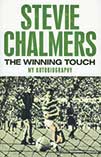 My autobiography
My autobiography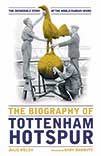 by Julie Welch
by Julie Welch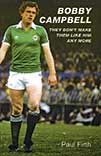 They don’t make them like him any more
They don’t make them like him any more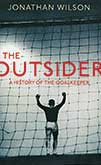 A History of the Goalkeeper
A History of the Goalkeeper